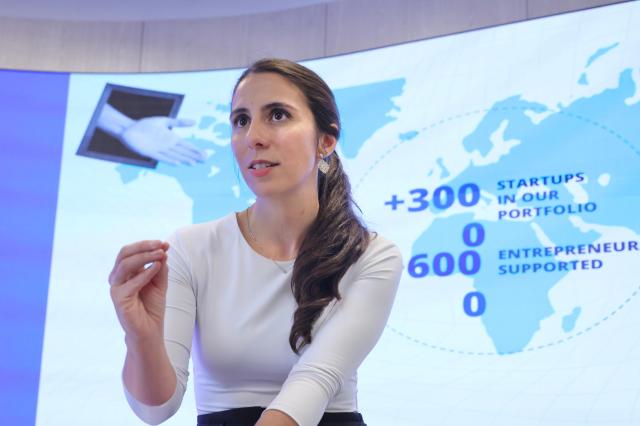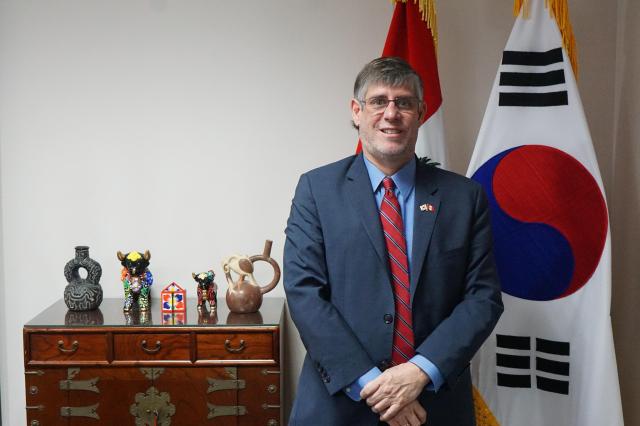
SEOUL, March 31 (AJP) - As cybersecurity threats grow more complex and tightly interwoven with economic, political, and technological forces, experts are calling on organizations to rethink their strategies. Among them is Rashmy Chatterjee, CEO of ISTARI — a global cybersecurity firm founded by Singapore's state-owned investment company Temasek in 2020.
With operations in the United States, Europe, and Singapore, ISTARI is dedicated to helping enterprises build long-term cyber resilience in a world where digital disruption and geopolitical instability go hand in hand.
Chatterjee brings a uniquely accomplished background to her role. She was the first female engineer in the Indian Navy, where she served as Deputy Director of Naval Design and was honored by the President of India for her pioneering work in naval engineering. After transitioning into the tech sector, she spent over two decades at IBM, ultimately becoming global sales leader for IBM Security and Chief Marketing Officer for IBM North America. Today, as CEO of ISTARI, she leads with a strong emphasis on client-centricity, innovation, and inclusive leadership.
Her leadership arrives at a critical moment. The World Economic Forum's Global Cybersecurity Outlook 2025 warns that 60 percent of organizations are adjusting their cyber strategies in response to rising geopolitical tensions, supply chain threats, and the growing impact of artificial intelligence. At the same time, Gartner has highlighted resilience, performance, and agility as key priorities for cybersecurity programs in 2025 — principles closely aligned with ISTARI's own philosophy.
In a written interview with AJP, conducted on Mar. 31, Chatterjee discussed ISTARI's growing interest in South Korea, the impact of AI-driven threats, and the importance of nurturing resilient cyber leaders.
"South Korea’s large digital and information technology (IT) landscape makes it an attractive market for ISTARI," Chatterjee said. "We focus on critical areas such as operational technology (OT) security, supply chain risk management, and modern security operations centers (SOC). Given South Korea’s prominent role in global manufacturing and production, these areas are particularly relevant," the ISTARI CEO explained.
ISTARI has already established partnerships with companies such as Ensign InfoSecurity, Asia’s largest pure-play cybersecurity firm, and Claroty, a leader in OT security. "We believe in 'Collective Power,'" she added. "Relying solely on one vendor can increase risk. Our approach is to integrate strengths across our ecosystem to help clients build more resilient operations."
The company is also open to collaboration with local institutions. "We would welcome the opportunity to collaborate with organisations like the Korea Internet & Security Agency (KISA). Forming strong partnerships with policymakers, practitioners, and innovators is key to driving collective resilience."
Chatterjee noted that South Korean enterprises face several pressing cybersecurity challenges. "OT security is a primary concern, especially with systems that operate across legacy and cloud-native environments. Supply chain risks and data governance, particularly as geopolitics influence technology decisions, are also major concerns."
ISTARI champions a holistic, long-term model of cybersecurity. "We view cybersecurity as a business challenge, not just a technical issue. Improving cyber resilience is a journey. We customize our solutions based on each client’s risk appetite and mission criticality, and we invest in cybersecurity startups to stay ahead with adaptable, cutting-edge solutions."
This mindset is increasingly vital as AI becomes a double-edged sword in the cyber world. "AI can automate and scale threats, increasing the likelihood of successful breaches," Chatterjee said. "But on the defense side, it can reduce costs, improve return on investment, and help detect and respond to threats like ransomware in real-time."
ISTARI’s advisory team is actively engaged in helping clients navigate both the risks and opportunities of AI. "Our Advisory team is deeply engaged in helping organizations secure AI systems while harnessing AI to strengthen their cybersecurity defenses."
Beyond technology, ISTARI invests in people. Its Navigator program, developed in partnership with the University of Cambridge’s Judge Business School, is designed to train the next generation of cyber leaders. "We’d be keen to bring this to the South Korean market," said Chatterjee.
Her leadership philosophy has been shaped by a wide-ranging career spanning the military, technology, and global business. "Working in defense taught me discipline and teamwork. IBM taught me the interconnectedness of business functions. My global career has shown me the value of diverse talent and inclusive leadership," she said.
Reflecting on her transition from naval engineering to cybersecurity, Chatterjee explained, "Curiosity. I wanted to understand how technology solutions are built and delivered. IBM helped me see the critical role of innovation, academia, and partnerships. I moved into cybersecurity when IBM launched its security division and saw the opportunity to grow that business in Asia and beyond."
A longtime advocate for women in technology, she encourages others to pursue leadership confidently. "Don’t be intimidated by the technical jargon or the traditionally male-dominated nature of the industry. Diverse perspectives are essential in securing the digital world."
As ISTARI prepares for the year ahead, it is prioritizing six key areas: Operational Technology Security, Supply Chain Security, Optimized SOCs, Data-Driven Governance, Crisis Preparedness, and Risk-Based Resilience.
When asked about the most defining moment of her career, Chatterjee pointed to the creation of ISTARI itself. "Founding ISTARI has been the most fulfilling experience of my life. It was my dream to build a business that prioritizes client success over vendor interests — one that believes in long-term relationships and delivers advice, technology, and skills holistically."
As cyber risks evolve and intensify, Chatterjee’s conviction remains steady: "Cybersecurity is not just about building the brakes — it’s about enabling organizations to scale with confidence."
Copyright ⓒ Aju Press All rights reserved.





View more comments